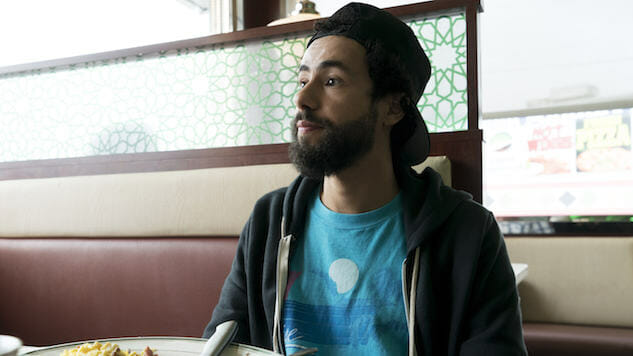Hulu’s Radically Optimistic Ramy Is One of the Year’s Best New TV Shows
Photo: Barbara Nitke/Hulu
A quarter-life crisis has never been sweeter than in Ramy. The half-hour Hulu dramedy follows a fictionalized version of star Ramy Youssef (who also writes many of the first season’s episodes) as he figures out life as a young Muslim Egyptian-American in New Jersey. Co-creators Ari Katcher and Ryan Welch, along with showrunner Bridget Bedard, find an endearing doofus in Ramy and plenty to say about generational compromise, religious identity, and culture clash. Ramy is easy to watch, radically optimistic, and a groundbreaking portrayal of Islam on screen.
Ramy is trying to be a devout Muslim, trying to find the right girl, and trying to work a job that won’t make him want to kill himself. Master of None is the immediate touchstone here since Ramy is also a smart, romantically idealistic, and semi-funny streaming show whose protagonist’s culture is underrepresented on TV. Ramy, however, is no Dev. He’s not a millennial dispossessed of his roots, but a deeply rooted man disenchanted with millennial culture. But Master of None is only one of the series—along with Atlanta, High Maintenance, and Girls—with which Ramy shares similarities. Ramy operates in the same well-shot prestige comedy aesthetic and tone, balancing dick jokes with stuff like a 9/11 flashback episode, and bringing to bear a tonal and thematic confidence totally its own.
The show is full of sublime specificity—its mosque-going is rich with detailed ritual, and its complex characters are seemingly ripped out of the Rolodex—but Ramy himself sticks the landing most of all. He’s a fascinating character, partially because his Christian counterparts all occupy preachy, smug Pure Flix films like God’s Not Dead. Ramy’s religion isn’t up for debate, but is simply another relationship that he’s constantly maintaining.
That’s emphasized in Ramy’s visuals as much as its writing. Its stark, lonely urban cinematography (lots of cold colors, isolating framing, and rigid environments) and bleakly chaotic neon parties bow to the warmth found in Ramy’s Muslim community. There’s not just togetherness at the mosque, the family dinner (even with his racist, misogynist uncle), or the casual run-in with an acquaintance. There’s also a feeling of fondness as the framing grows tighter, the colors warmer. The camera finds hope in these vital connections, even when interrogating some of their less-than-ideal qualities. Remember that uncle? Ramy’s devotion to Islam and his culture might be as imperfect as those institutions, but even its frayed wire links him to so much.
-

-

-

-

-

-

-

-

-

-

-

-

-

-

-

-

-

-

-

-

-

-

-

-

-

-

-

-

-

-

-

-

-

-

-

-

-

-

-

-








































